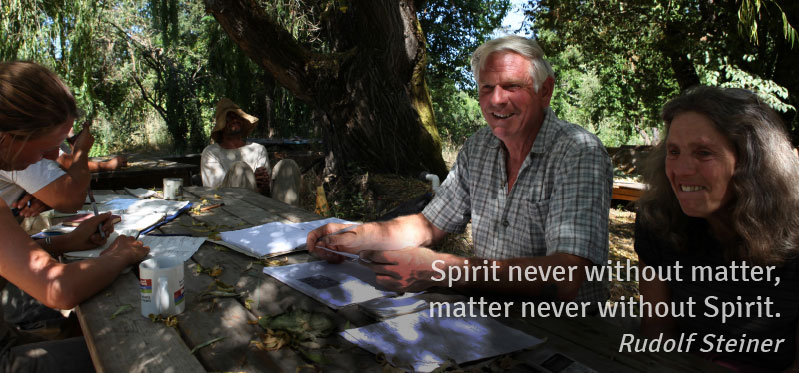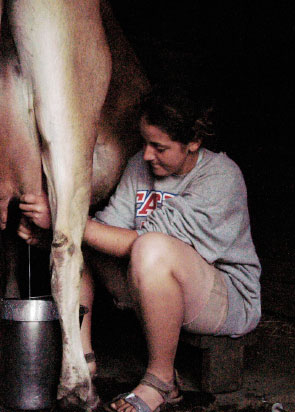“Spirit never without matter, matter never without Spirit.
– Rudolf Steiner
Our apprenticeship program provides the opportunity to try small-scale sustainable farming without capital investment, risk, or living expenses on a producing farm in a work-study environment. Over the course of the season, which runs from March to December, we will touch upon many topics through discussions and/or hands-on experience. We will encounter many of the topics in the process of operating the farm throughout the year. Often this instruction and discussion will occur in the field as we work.
Questions, discussion, and instruction may also occur at the regular weekly Monday morning planning meeting, during mealtimes, on garden tours, at midweek evening gatherings, and at organized training
workshops during the workday. It is important for apprentices to ask about the different topics they are interested in, because as experienced farmers and teachers we want to share what information we have and how we learned it. If we know there is expressed interest in a particular subject,we will discuss it. We will not automatically address subjects for which there seems to be no interest.
At the beginning of the season, we will discuss with each apprentice his/her educational goals and create an outline for those goals. We will also delineate the goals: the ones that are likely to be addressed in the course of the farm’s operation during the upcoming season, the ones that are more likely to be addressed in a second year on this farm, and the ones that will pr obably need to be addressed on a different farm. Each year is unique. The group of apprentices will have various levels of farming experience and knowledge, from none to several seasons’ worth.
Our work-study apprenticeship is different from an academic-based program. An apprenticeship is training carried on in the context of a working farm that is making its living from crop production; maintenance goals and minimum production levels are critical. An academic-based program also will operate in the context of a farm, but not necessarily a farm that is supported primarily by its crop income. The tuition that is often charged for an academic-based program can result in giving that farm greater flexibility, allowing it to address a more academic curriculum, such as the agro-ecology program at the University of California at Santa Cruz.
There is a well-equipped agricultural library at Live Power Community Farm, and we encourage each apprentice to keep his/her own “garden log/observation and learning diary” to take with them as a reference at the end of the y ear. The main farm log and livestock record books are also available for study. We participate in the Biodynamic Association of Northern California (BDANC) apprentice-training program which meets at various farms on 7 weekends during the season. This program provides a good opportunity for concentrated study of Rudolf Steiner’s “agriculture” lectures and other works, and biodynamic farming and anthroposophical subjects. It is also a good time to meet apprentices from other farms, share experiences, and socialize. The host farm and farmer will describe their farm operation and lead or arrange studies in the 2-year curriculum the program follows. During the year, apprentices take up a subject or project of their own at their base farm and share with the group what they have learned from the projects at the end-of-the-year apprentice meeting



